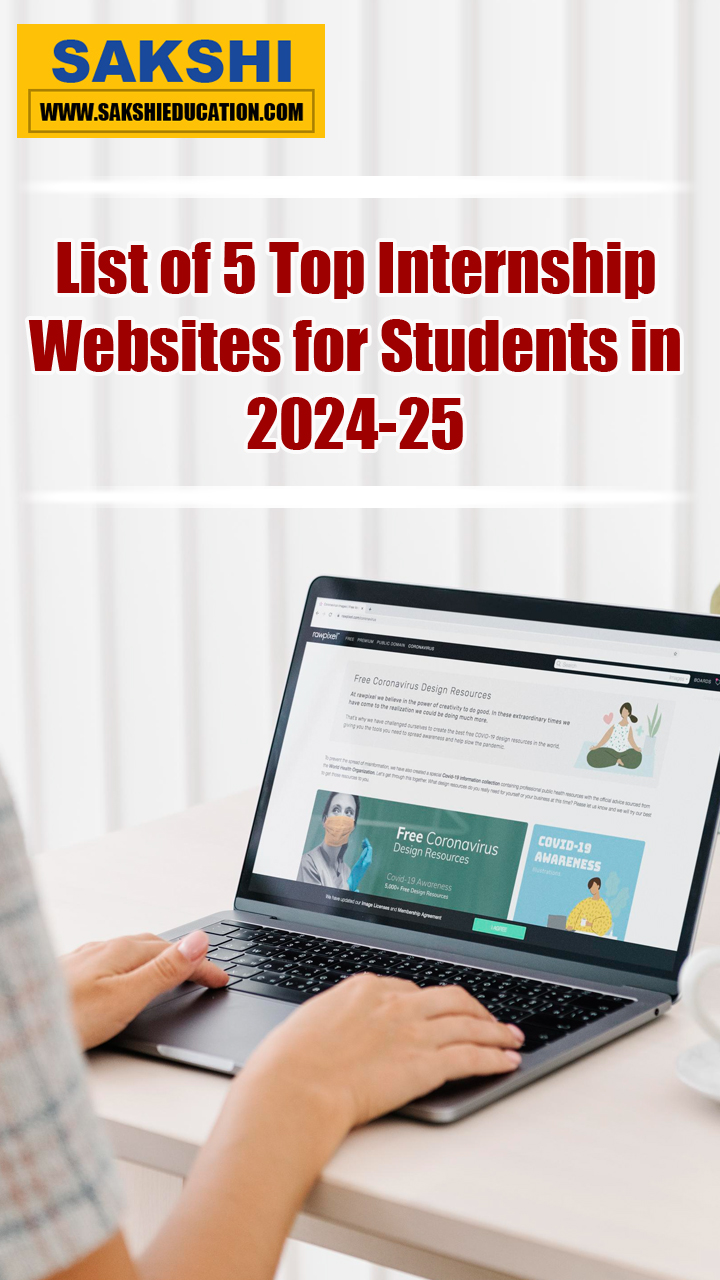How to prepare for an Interview?
Sakshi Education

In this highly competitive world, every day we need to groom ourselves to get the desired job. To make that dream a reality, constant updating of knowledge, right method of approach, life skills with a combination of soft skills are the need of the hour for engineering students.
Attending interview is a crucial step in obtaining the job. However, a small mistake in interview could cost your job, if you are not really prepared for this all-important event in the recruitment process. Following are a few tips, which will help you in preparing for the interviews and avoiding any possible mistakes:
What are preliminary preparations that I should make to face an interview?
Your university careers and employability service is likely to provide mock interview sessions.
Alternatively, you could:
Phone interviews are most often used as a preliminary screen. When preparing for the interview it’s important to consider:
More recently, there has been an increase in Skype or video interviews. This is particularly likely if applying for jobs overseas or where key staff is located overseas.
Remember to dress as you would for a face-to-face interview and check what else will be in the shot with you before the interview begins.
How do I prepare for a second interview?
A second interview means you have made it through the initial screening and the interviewer is now looking for:

Santhi Kiran K
Assistant Manager - HR
SAI Life Sciences Limited,
Hyderabad.
Attending interview is a crucial step in obtaining the job. However, a small mistake in interview could cost your job, if you are not really prepared for this all-important event in the recruitment process. Following are a few tips, which will help you in preparing for the interviews and avoiding any possible mistakes:
What are preliminary preparations that I should make to face an interview?
- Before attending the interview, understand the role of the position and know about the organization.
- Match your experience with the requirement of the position and analyze the skills required to perform the role.
- Research the latest updates about the trends in the job sector.
- Anticipate questions you might be asked, then prepare answers to these questions.
- Imagine the entire process of interview and prepare well for that so that you could face it without any trouble.
- Plan the day of the interview, especially your travel so that you could reach the interview avenue ten minutes early.
- Go to bed early so that you will be fully awake and perform better in the interview.
- Reach the interview place before the scheduled time to understand the environment and have some breathing space.
- Decide what you to wear and set it out the night before. Business/formal wear is the best option and always wear comfortable, polished shoes.
- Take your application letter, CV and examples of work (if appropriate) with you.
- Listen carefully to questions and answer them concisely.
- Highlight your best attributes in the interview. Before you go, think about what you want the interviewer to know about you (in relation to the job) during the interviewing process.
- Pay attention to the way you communicate. There’s evidence to suggest that non-verbal communication overpowers verbal communication. So your body language is important. Practice anything you’re concerned about. This could be saying your answers aloud, which builds confidence in hearing yourself speak, or having a trial run of the journey to the interview.
Your university careers and employability service is likely to provide mock interview sessions.
Alternatively, you could:
- practice your answers (to anticipated questions) with someone you trust and seek feedback but don’t be overly self-critical.
- Use non-job interviews as opportunities to practice and monitor your interview skills, e.g. discussions with your tutor, doctor etc.
- Ask for feedback and advice after unsuccessful interviews and take it as an opportunity to learn and improve.
- In general you don’t need anything else more than your own letter of application and CV, the job specification/description and your own notes.
- Your invitation to interview should detail everything you need to bring. Often employers request examination certificates, which can take time to locate, so make sure you check what you need before when you have plenty of time.
- You might wish to impress by reading up on the organization’s literature, e.g. a business plan or corporate social responsibility strategy, but make sure you have read it in depth and be prepared to share your views and ideas.
- A pen and notebook are always worth carrying with you and, if giving a presentation, take a copy on a data stick even if you have emailed it beforehand, along with copies of the slides to use as handouts for the interview panel.
- If you take a mobile phone, make sure it is switched off or set to silent mode before entering the interview room.
Phone interviews are most often used as a preliminary screen. When preparing for the interview it’s important to consider:
- Tone of voice - ensure you’re enthusiastic and use positive language;
- Battery life - if using your mobile charge it fully before the interview;
- Location - find a quiet place for the interview, where you will be undisturbed by noise or others.
More recently, there has been an increase in Skype or video interviews. This is particularly likely if applying for jobs overseas or where key staff is located overseas.
Remember to dress as you would for a face-to-face interview and check what else will be in the shot with you before the interview begins.
How do I prepare for a second interview?
A second interview means you have made it through the initial screening and the interviewer is now looking for:
- Evidence that you have the skills, abilities and interest to carry out the job;
- Confirmation that you are able to bring something of value to the organization.
- Find out as much as you can about the challenges that face the organization, its priorities, its markets, its competitors, any existing or new legislative arrangements, etc.;
- Think about what you could bring to the organization and prepare examples of how you have achieved (or learned) something of relevance;
- Find ways to demonstrate enthusiasm for the goals of the organization.

Santhi Kiran K
Assistant Manager - HR
SAI Life Sciences Limited,
Hyderabad.
Published date : 14 Nov 2013 12:33PM

















